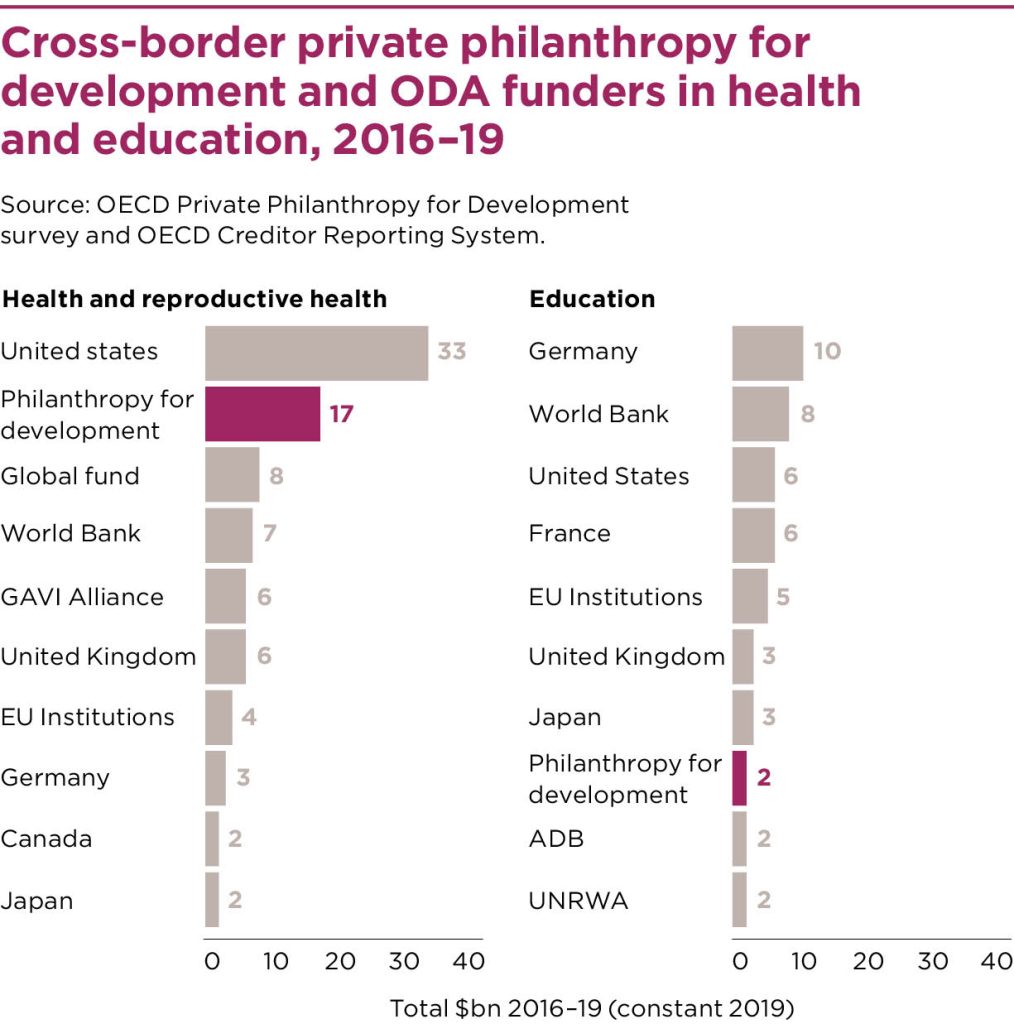Philanthropy is an increasingly significant force in terms of figures for development funding, yet reluctance to make common cause and to measure and account for itself are reducing its effectiveness
With $42.5 billion of philanthropic funding provided in 2016-19, foundations have become an integral part of the development finance landscape. The Organisation for Development Co-operation and Development (OECD) Centre on Philanthropy’s most recent report Private Philanthropy for Development – Second Edition: Data for Action collected data from 205 foundations active in developing countries from 2016 to 2019. It revealed that philanthropic contributions for development, when ranked next to sources of official development assistance (ODA), have significant power, particularly in the health and education sectors. For instance, in health, international philanthropy was the second source of international funding for developing countries, just after ODA from the US. In education, it was the eighth largest source, with funding volumes comparable to ODA provided by Japan.
However, philanthropic giving is not always underpinned by development effectiveness principles, and in many contexts foundations are not truly accountable to their partners or the communities in which they are engaged. So how do we solve this equation? There is no silver bullet, yet three necessary steps involve data, dialogue and convergence.

Subscribe now from only £45 a year!
This article is only available for our subscribers
Existing users can login here






